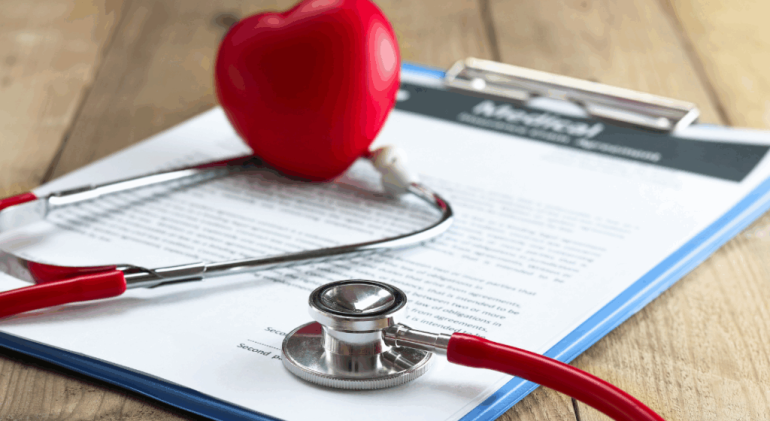
The Importance of Understanding Arrhythmias: A Comprehensive Guide to Heart Rhythm Disorders
Arrhythmias, or irregular heartbeats, are a common yet critical aspect of cardiovascular health. They can range from harmless to life-threatening, making understanding them essential for anyone concerned about heart health. In this article, we will explore the different types of arrhythmias, their causes, symptoms, diagnosis, and treatment options.
What is an Arrhythmia?
An arrhythmia is a condition that affects the heart’s rhythm. The heart may beat too fast (tachycardia), too slow (bradycardia), or in an irregular pattern. These disturbances can disrupt the heart’s ability to pump blood effectively, leading to various complications.
Types of Arrhythmias
Arrhythmias can be classified into several categories:
- Atrial Fibrillation (AFib): This is the most common type of serious arrhythmia, characterized by a rapid and disorganized electrical activity in the heart’s upper chambers (atria).
- Atrial Flutter: Similar to AFib, but with a more organized pattern of electrical activity, leading to a rapid heartbeat.
- Ventricular Tachycardia (VT): A fast heart rate originating from the ventricles that can be life-threatening.
- Ventricular Fibrillation (VF): A chaotic rhythm that results in ineffective heartbeats, leading to cardiac arrest.
- Bradycardia: A slower than normal heart rate that can cause fatigue and fainting.
- Premature Beats: Early heartbeats that can occur in both the atria and ventricles and are usually benign.
Causes of Arrhythmias
Several factors can trigger arrhythmias, including:
- Heart Disease: Conditions such as coronary artery disease or heart valve disorders can lead to arrhythmias.
- Electrolyte Imbalances: Low or high levels of potassium, magnesium, or calcium can affect heart rhythm.
- Medications: Some drugs can cause or exacerbate arrhythmias.
- Alcohol and Caffeine: Excessive consumption can lead to irregular heartbeats.
- Stress and Anxiety: Emotional stress can have a direct impact on heart rhythm.
Symptoms of Arrhythmias
Not everyone with an arrhythmia will experience symptoms, but when they do, they may include:
- Palpitations (a feeling of fluttering or pounding in the chest)
- Dizziness or lightheadedness
- Shortness of breath
- Chest pain or discomfort
- Fainting or near-fainting episodes
Diagnosis of Arrhythmias
Diagnosing an arrhythmia typically involves several steps:
- Medical History: Your healthcare provider will ask about your symptoms, medical history, and family history of heart disease.
- Physical Exam: A thorough examination may include checking your pulse and blood pressure.
- Electrocardiogram (ECG or EKG): This test records the electrical activity of your heart and can identify arrhythmias.
- Holter Monitor: A portable ECG monitor worn for 24 to 48 hours to capture intermittent arrhythmias.
- Event Monitor: Similar to a Holter monitor but used for longer periods to capture infrequent arrhythmias.
- Electrophysiological Study: A specialized test that examines the electrical pathways of the heart.
Treatment Options for Arrhythmias
Treatment for arrhythmias varies depending on the type and severity. Options may include:
- Lifestyle Changes: Reducing caffeine, alcohol, and stress can help manage symptoms.
- Medications: Antiarrhythmic drugs can help control heart rhythm.
- Cardioversion: A procedure that restores normal heart rhythm, either through electrical shocks or medications.
- Ablation: A minimally invasive procedure that destroys small areas of heart tissue causing arrhythmias.
- Implantable Devices: Pacemakers or implantable cardioverter-defibrillators (ICDs) can help regulate heart rhythm.
Living with Arrhythmias
For many people, arrhythmias can be managed effectively with the right treatment and lifestyle adjustments. Regular follow-ups with a healthcare provider are crucial to monitor heart health and adjust treatment as needed. Patients should also keep track of their symptoms and report any changes to their doctor.
When to Seek Medical Attention
If you experience symptoms like chest pain, severe dizziness, or fainting, it is crucial to seek immediate medical attention. Early diagnosis and treatment can be lifesaving.
Conclusion
Understanding arrhythmias is essential for maintaining heart health. By recognizing the symptoms, knowing the causes, and seeking appropriate treatment, individuals can take proactive steps in managing their cardiovascular health. Always consult with a healthcare professional if you have concerns about your heart rhythm.
Disclaimer: This blog post is for informational purposes only and should not be considered medical advice. Always consult with a healthcare professional for concerns regarding your health.
Disclaimer: This article is for educational purposes only and does not constitute medical advice. Always consult a qualified healthcare professional.
